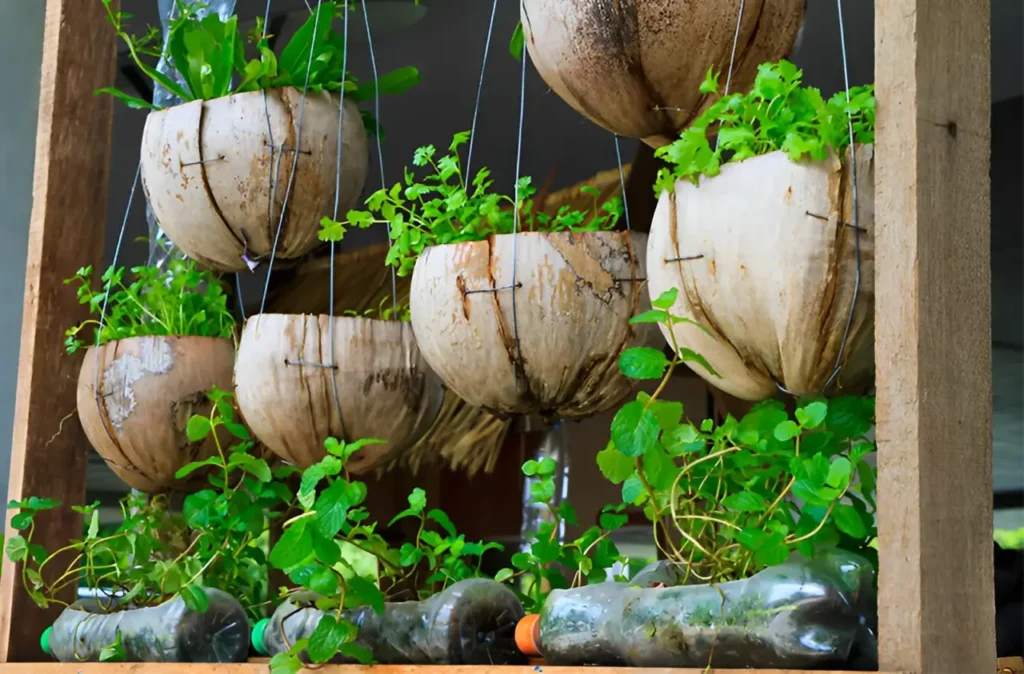Creating an eco-friendly garden is not only beneficial for the environment but also enhances the health and beauty of your outdoor space. By adopting sustainable gardening practices, you can conserve resources, reduce waste, and support local wildlife. This guide will explore various strategies to transform your garden into an eco-friendly haven, from composting to water conservation and native planting.
Composting: Turn Waste into Gold
Composting is one of the easiest and most effective ways to make your garden eco-friendly. By composting kitchen scraps and garden waste, you can create nutrient-rich soil that promotes healthy plant growth. Start by setting up a compost bin in a shady spot and regularly add vegetable peels, coffee grounds, and yard trimmings. Turn the compost pile frequently to speed up decomposition. Not only does composting reduce landfill waste, but it also enriches your soil without the need for chemical fertilizers.
Water Conservation Techniques
Water conservation is crucial in sustainable gardening. Implementing techniques such as rainwater harvesting, drip irrigation, and mulching can significantly reduce water usage. Collect rainwater in barrels and use it to water your plants. Install a drip irrigation system to deliver water directly to the roots, minimizing evaporation and runoff. Apply a layer of mulch around plants to retain moisture and suppress weeds. These methods not only save water but also ensure your plants receive the hydration they need efficiently.
Planting Native Species
Choosing native plants for your garden supports local ecosystems and requires less maintenance. Native plants are adapted to the local climate and soil conditions, making them more resilient to pests and diseases. They also provide habitat and food for native wildlife, promoting biodiversity. Research plants that are native to your area and incorporate them into your garden design. Native plants often require less water and fertilizer, making them an eco-friendly choice for sustainable gardening.
Using Organic Fertilizers and Pesticides
Chemical fertilizers and pesticides can harm the environment, contaminating soil and water sources. Opt for organic alternatives that are safer for the ecosystem. Organic fertilizers, such as compost, manure, and bone meal, provide essential nutrients to plants without the negative impacts of synthetic chemicals. Similarly, organic pesticides, like neem oil and insecticidal soap, effectively control pests while being less toxic to beneficial insects and wildlife. By choosing organic products, you contribute to a healthier garden and environment.
Supporting Local Wildlife
Creating a wildlife-friendly garden enhances biodiversity and supports local ecosystems. Provide food, water, and shelter for birds, bees, butterflies, and other beneficial creatures. Plant a variety of flowering plants to attract pollinators, and install bird feeders and baths. Leave a section of your garden wild, with native grasses and shrubs, to provide habitat for small animals and insects. Avoid using pesticides and herbicides that can harm wildlife. A garden teeming with life not only benefits the environment but also creates a vibrant and dynamic outdoor space.
Reducing Plastic Use in Gardening
Plastic waste is a significant environmental issue, and gardening is no exception. Reduce plastic use by opting for biodegradable pots, wooden plant markers, and reusable containers. Avoid plastic plant tags and instead use natural materials like bamboo. Choose tools made from sustainable materials, such as metal and wood, instead of plastic. By minimizing plastic in your gardening practices, you reduce waste and promote a more sustainable lifestyle.
Making your garden eco-friendly is a rewarding endeavor that benefits both you and the environment. By implementing composting, water conservation, planting native species, using organic fertilizers and pesticides, supporting local wildlife, and reducing plastic use, you create a sustainable and vibrant garden. Embrace these practices and watch your garden thrive while contributing to a healthier planet.
FAQS
Incorporate these eco-friendly practices into your gardening routine to create a beautiful, sustainable, and environmentally friendly garden.
